Top 23+ Philosophical Books To Challenge Your Beliefs (For 2023)
In a world where we are constantly bombarded with choices, it's refreshing to read a philosophical fiction books that make you think about the bigger picture.
The philosophical book genre is a specific class that introduces questions normally managed in philosophy. Explore the human condition, the functionality of the society and the motivation of human actions in a fictional manner. The genre may seem a bit difficult at first, but the action takes place in a science or utopian fiction environment that will trigger your senses.
What are Some Typical Topics of Philosophical Thinking?
- Ethics: right and wrong, good and evil, justice, morality, and responsibility.
- Metaphysics: the nature of reality, existence, time, and space.
- Epistemology: knowledge, truth, belief, perception, and justification.
- Logic: reasoning, argumentation, and the laws of thought.
- Political Philosophy: government, democracy, power, and authority.
- Aesthetics: beauty, art, taste, and the nature of aesthetic experience.
- Existentialism: the meaning of life, freedom, and human existence.
- The Philosophy of Mind: consciousness, perception, mental states, and the relationship between the mind and the body.
- The Philosophy of Science: scientific method, explanation, and the relationship between science and society.
All in all, here are some of the best classic philosophical fiction books, including some very new titles to push your thoughts to another level.
What Are The Essential Philosophical Fiction Books To Read?

Short Stories for Thinkers, by Francesca Flood (2023)
Short Stories for Thinkers contains a collection of well-written short stories that make readers reflect on life's complexities and intricacies. These stories are perfect for a quick read during a lunch break or after a long day, and feature clever characters that readers will root for. Each story presents a different situation that will make readers contemplate their own actions and consider what they would do in similar circumstances.
The book acknowledges that the world is imbalanced and flawed, and emphasizes the importance of the choices we make in defining ourselves. The stories in Short Stories for Thinkers challenge readers to think deeply about the consequences of their actions, and offer a range of outcomes that are not always predictable.
Overall, the book provides an enjoyable and thought-provoking reading experience that encourages readers to reflect on their own lives.

Café de Sophia, by M.A. Alsadah (2022)
This philosophical book is a must-read if you are specifically interested in reads that capture motivation for human conditioning and societal functionality. It has captured the details in an easy and comfortable fictional manner. It is also a real catch if you want to get the thrill of Socrates' fashion dialogue,
The book takes you through the remarkable and exhilarating story of Nate, aged sixteen, taking shelter from the rain in the exquisite café de Sophia. He goes on to encounter a fascinating man named Plato, who strikes up an interesting conversation with him. They automatically become friends, and Nate goes ahead to befriend Plato’s other philosophical companions aiming to get to know his life’s direction and purpose.
As the book unfolds, you will see how Nate uses every chance to engage in deeper conversations involving meaningful and different subjects. These well-learned philosophers help Nate shape his journey forward regarding the beauty of speech, logic, and how to acquire knowledge through science.
The dialogue in this book is made in fashionable and striking Socratic language. Alsadah presents various philosophical theories in this intriguing story in a fresh way that will leave you yearning for more. If you often engage in intellectual conversations and want to see the way forward for Nate River, grab this read.

Demon Copperhead, by Barbara Kingsolver (2022)
The title of this book may appear not to be a cheerful read but wait till you start turning the pages. You won’t be able to put it down. It is a scalding perspective of a forgotten population told by a curious red-haired kid who has gone through a ton of poverty, love, losses, starvation, and foster home life. He is a hero worth reading.
This sensational read tells the story of Damon Fields, nicknamed Demon Copperhead. It is set in the Appalachian Mountains, and Barbara captures the heart of Demon Copperhead, a boy born with nothing to inherit from his father besides his good looks and copper-colored hair. Luckily, he has admirable wit and a talent for going through life. Through his courage, he overcomes the disasters in his life of a crumbly foster care system, child labor, opium addiction, athletic success, disheartening losses, and disastrous lovers.
You will love how inspirational Damon’s story is. Despite all the setbacks he encounters, he keeps pushing on even after becoming a drug addict.
The characters in this fantastic book are something to keep you glued too. From Annie, the art teacher, to Angus, the daughter of the school football coach who finally takes Damon in, they all make this masterpiece worth your time.
Barbara has excellently captured the unwavering and authentic voice of Demon Copperhead to relay the message of poor communities who are often stereotyped or ignored in the present age. If you fancy David Copperfield novels, you will see small echoes in this philosophical fiction book, which you will definitely love.

Flowers For Algernon, by Daniel Keyes (1959)
This story is perfect, powerful, and great. I could list other words of praise. I was hooked from the very first moment, and I was not even a quarter of the way through the book when I knew that it was going to be one of my all time favorite.
This book radically alters a person's worldview. If you remove all the plot threads that seem irrational, you realize how universally valid the story is. I have always felt that we shouldn't treat people with low intelligence differently.
I always think this is not fiction, because we constantly meet people like Charlie. Just because someone is different doesn't mean he should be excluded from society. I could condemn Charlie's mother the most in the story. Just because your son doesn't have the IQ you desire doesn't make it right to abandon him.
The cycle in the storyline the author created, the whole story itself, was simply genius. Heartbreaking, captivating, and adorable. I loved Algernon and I loved Charlie. I really can't put into words how I felt when I first finished this book.

The Stranger, by Albert Camus (1989)
The Stranger has received exquisite criticism – both positive and negative, as no one can really tell what message the book is trying to send. There is a bit of absurdism mixed with existentialism – pretty much a style of its own. The story follows Mersault. He is a French Algerian – basically, a French citizen living in North Africa. He is a man of nature – a man of the Mediterranean, yet he does not really adhere to the classic principles of such people. All in all, the story begins with his mother's funeral and takes an unusual turn when he ends up killing a man in French Algiers.
The story is split into two different parts and both of them follow up in a first person point of view. The first part covers Mersault's life before the murder. The second one goes through his thoughts and ideas after the murder.

The Unbearable Lightness Of Being, by Milan Kundera (1984)
The Unbearable Lightness Of Being takes the reader through a story of life, passion, love, difficulty and political changes. The story follows two women, two men and a dog. The action takes place in the 1960s, in Czechoslovakia. All in all, the book follows a young woman who is in love with a man. But then, the man has a mistress, who also has a lover. There are multiple styles covering this story in small details – from exquisite reflections to various places and points of view. The wide variety of styles could be the main element behind the success of this story.
In terms of political views, the book follows the Soviet invasion and the further pacts. It describes the artistic aspect of the Czech society and the types of issues people had to deal with back then. It is quite realistic, but it will also raise a few question marks.
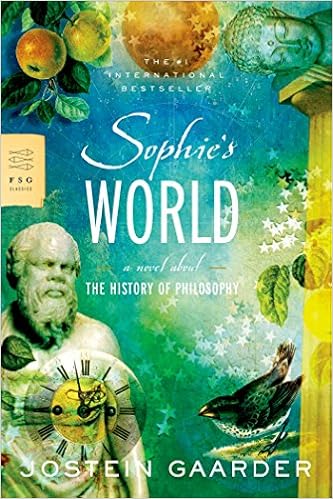
Sophie's World, by Jostein Gaarder (1991)
Sophie's World is a story that will hook you in straight away, yet it also makes one of the best philosophical fiction books to enjoy in an easy and comfortable manner. The book follows Sophie Amundsen's story. She is only 14 years old and she lives in a small village from Norway. She comes back from school one day and checks the mailbox, only to find two notes. One of them asks her who she is, while the second one asks where the world comes from – more than enough to trigger young Sophie's imagination and hunger for knowledge and philosophy.
With time, she ends up studying these ideas and enrolls in a weird correspondence course. But then, she realizes that the letters are actually addressed to another girl – Hilde. Who are all these people? Who is Hilde and who keeps sending her notes? As she tries to reveal the answers, Sophie realizes that the world is way more complicated than she thought.

The Trial, by Franz Kafka (1925)
The Trial is one of Franz Kafka's most appreciated books, yet it might as well be the book he never wanted out. The book was written in 1914, but it was only published in 1925, after he passed away.
The Trial is a terrifying story that resonates with the truth even in today's society. It follows Josef K., a reputable bank clerk who ends up being arrested. It happens out of nowhere and he has no idea what has happened. He cannot find any information about the crime either, so he basically finds it impossible to defend himself. From that point on, the book is somewhere between a thriller and a crime story, but its meaning is deeper than that.
Some critics refer to it as a parable. Some others see it as an existential tale or perhaps a prophecy. From other points of view, the book seems to target the modern bureaucracy in a totalitarian society. One thing is for sure though – this philosophical fiction book has always resonated with different times, including today's society, hence its popularity.

The Fountainhead, by Ayn Rand (1943)
The Fountainhead is a classic and can easily resonate with further generations too. It was actual when it first came out in 1943 and it is just as actual today – chances are it will never lose its popularity. It describes objectivism in the smallest details, but it also brings an unusual type of philosophy. All in all, there are more leads to follow in the book. First, you have an architect – Howard Roark. He is known for his incredible integrity. Then, you have Dominique Francon, who has always loved Roark, but married his enemy instead. Then, you have the conflict – a deranged society where things can always take unusual turns and go from bad to worse.
The novel is extremely provocative and adheres to a philosophical point of view while exploring the human ego and its evolution, as well as the human progress. The book is written in a subtle manner, so philosophical aspects may not be too easy to spot – definitely a challenge for the untrained reader.
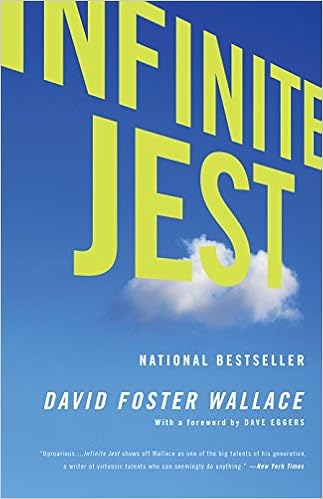
Infinite Jest, by David Foster Wallace (1996)
This philosophical fiction book brings in a bit of comedy at times, tragic moments every now and then, a philosophical point of view and an easy to follow the action. Everything relates to pursuing happiness in the USA and the author has done an excellent job at pushing all these apparently unrelated elements together. The action takes place over two different locations – a house and a tennis academy. Then, it brings in one of the most unusual families to join the genre over the past few decades. The purpose? Exploring entertainment. People find entertainment in different ways, but this family can certainly stand out.
At this point, you end up asking yourself how entertainment has managed to dominate your life. How does your desire affect your need to communicate with others? What kind of pleasures do you have as a human being? What can they tell about you? A mix between a philosophical idea and a dumb comedy, this book shows the reader what truly makes people human.

The Man Without Qualities, by Robert Musil (1930)
The Man Without Qualities would be perfect, yet it has one major flaw. Written between 1930 and 1943, it comes in three volumes and various drafts. However, the bad news is Robert Musil did not have enough time to finish it, so it lacks the ending – it will leave you craving for more. The good news is the lack of an ending does not really ruin the experience because this philosophical fiction book is a story of random ideas taking place before the Austro-Hungarian monarchy disappeared. The action takes place in Vienna and follows Ulrich, a former soldier who is also a scientist.
On a more personal level, Ulrich is a skeptic, but also a seducer. He ends up drafted in the majestic plans for Emperor Franz Josef's jubilee. One thing leads to another to hook you in, but you will also end up exploring issues and ideas regarding feelings, humanity and society standards. It will dazzle you, but it is worth a read.
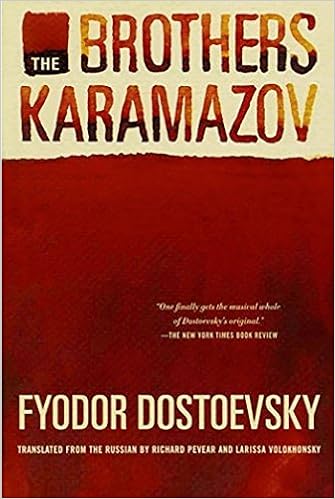
The Brothers Karamazov, by Fyodor Dostoevsky (1880)
The Brothers Karamazov has a bit of everything. You get a bit of philosophy, some drama, lots of mystery and erotic rivalry – anything to get you hooked in straight away. The book follows Fyodor Pavlovich Karamazov's story. He has three sons – Dmitri, Ivan and Alyosha, each of them with unique personality traits.
The story may not feel like it goes in one direction or another, but its main role is to portray the entire Russian lifestyle. It covers the social aspects of life in Russia, as well as the spiritual considerations. Everything takes place in the golden age and it explores happenings occurring in a few tragic moments for the Russian culture.
The story may not be too new, but it is still authentic and many parts of it are extremely realistic. It will surprise you with a bit of humor, as well as modern considerations that apply to today's society to – Dostoevsky's last novel.

In Search Of Lost Time, by Marcel Proust (1913)
In Search Of Lost Time is not just a book, but a novel spread over seven different volumes. Obviously, it pays off starting with the first one and taking them in order if you truly want to understand everything. It may seem complicated and sophisticated at times, but also easy to read and informative every now and then. All in all, the story is about self-discovery.
Some claim that the book will also introduce you to the comic aspects related to France during the author's time. It can also be seen as a sign of meditation for memory, love and time. For most readers, characters will make the book feel alive. From Swann and Odette to Morel and Saint-Loup, there are lots of people who will underline life in France from multiple points of view.
The novel started in 1909 and was finished in 1922. The last three volumes bring in some unpolished parts. While the author used to edit each book before releasing it, the last three remain untouched.

The Moviegoer, by Walker Percy (1961)
The Moviegoer is the book that turned Walker Percy into one of the best rated authors in this genre. The story follows Binx Bolling. The young broker lives in New Orleans and aims to find balance in his life. Just before his 30th birthday, he decides to go out with his secretaries. He ends up going to movies – the ideal activity to bring a bit of excitement to his life and help him forget about his daily struggles.
However, things take an unusual turns when he embarks on an unusual quest. His actions outrage his family members. His cousin Kate ends up in danger, while the young broker is overwhelmed by the chaotic experience of the French Quarter of New Orleans. All in all, the story can certainly teach the reader a few good lessons.
There is plenty of irony in every chapter, as well as a bit of love, hassle, drama and mystery. The book is definitely a classic everyone should give a try.
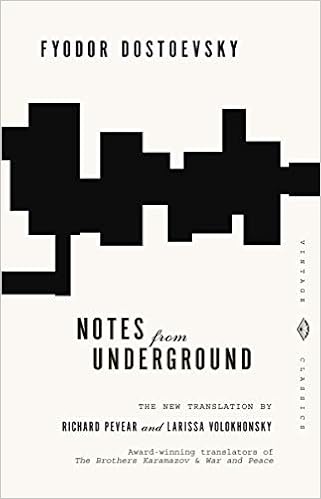
Notes From Underground, by Fyodor Dostoevsky (1864)
This is one of the first existentialist novels out there and it will certainly trigger some of your beliefs and challenge your thoughts. It is probably the most revolutionary piece of work in the author's portfolio. Explore the action from the 19th century and move on to what happens in the 20th century with a very fine line between two different concepts.
The narrator has been rated as one of the most attractive characters in literature. There are not too many details about them, but they have decided to adopt an underground existence. There is no more access to society and no social contact, but an intense and passionate attack on modern utopianism. In other words, there is a serious challenge of a man's irrational nature.
Apart from the mysterious aspect of this philosophical fiction book, there is plenty of philosophy to be interpreted in different ways, based on each reader's point of view.

The Picture Of Dorian Gray, by Oscar Wilde (1890)
Oscar Wilde's masterpiece aims to be dazzling, confusing and appealing at the same time. The story follows a young man who puts his look and fashion style before anything else. He knows the world is superficial and he knows looks will make the difference. Therefore, he decides to sell his soul for eternal beauty.
The book follows moral disintegration in the smallest details. It had a serious corrupting influence when it first hit the market, so the author got lots of criticism for it. One thing led to another and Oscar Wilde ended up imprisoned due to this book. All in all, the story goes in multiple directions and although it came out more than a century ago, it is extremely valid and real for today's society.
From some points of view, the book can be encouraging for some and it brings in all the sins stuck in a dark corner of your brain – all the sins you have never had the courage to do.

Brave New World, by Aldous Huxley (1932)
Brave New World takes place in a dystopian society from the future – believe it or not, some of the aspects in the author's point of view are quite real and might as well apply to today's world. The book came out in 1932 and brings in access to a so called World State – somewhere in the future. Everything is different from what you might expect from a futuristic city.
People are all genetically modified and the hierarchy is based on nothing but intelligence – the smartest at the top and the dumbest at the bottom. The novel covers some interesting reproductive technologies that might affect the future. Plus, sleep learning is also analyzed, not to mention a deeper form of manipulation. Classical conditioning is also part of the game – nothing really makes sense.
However, all these unusual things come together to build a very comprehensive dystopian society. There is only one challenger who feels like things could be different though – the protagonist.
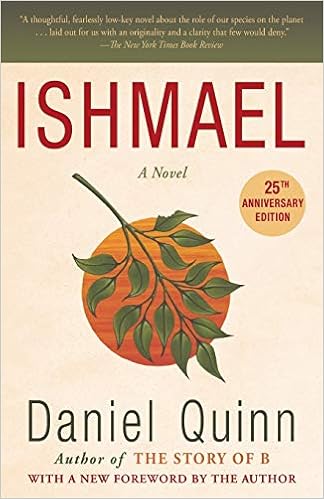
Ishmael, by Daniel Quinn (1992)
Released in 1992, Ishmael challenges a few beliefs that were quite popular a few decades ago – many of them are still applying to today's society. The narrator tells an extraordinary story in the attempt to find the truth behind certain behaviors. Looking for a job in a local newspaper – a professor looking for new pupils, he ends up in an old office with nothing but a gorilla. Is that the professor?
The gorilla replies – yes. The gorilla is named Ishmael and has an interesting story to tell – a story that most people could benefit from. The story begins at the beginning of the society and expands over multiple generations. Like any other good professor, Ishmael makes the lesson a bit challenging and asks from illumination from within the pupil's heart.
A book against morals and ethics, but also supportive for different points of view, Ishmael will definitely make you ask yourself a few questions.

Wittgenstein's Mistress, by David Markson (1988)
Wittgenstein's Mistress is the type of story that can convince you about things that are not even real. It is confusing at times, but things will click together at some point or another. All in all, the story follows a woman who is convinced that she is the last person on earth. Unsurprisingly, she will manage to convince readers as well.
However, some may say that she is mad. But as you go through the story, her addictive character and intellectual considerations will make you follow her. You will be addicted to her and you will learn about unrelated things – the type of things that will make you want to know more. As you explore the world through her eyes, you realize that her troubled past is responsible for everything.
The book turns into a philosophical drama with realistic accents of fiction – it will hook you in straight away.

A Man Called Stan, by Johan Henning (2003)
While not necessarily a new release, this philosophical fiction book is worth being mentioned for the lessons of life one could learn from it. You are about to meet Stan. Stan goes through life just like everyone else – you can relate to some of funny the things he goes through, just like you will find solutions to some issues that you might experience while reading this humour filled book.
It is a modern tale that will apply to further generations too. There is nothing special about Stan, but this is the main point this keeps the story moving forward. There will be certain spiritual and philosophical tales you will learn from. Then, there will be tales that will make you cringe or feel sad. Most importantly, you will learn something from every situation in this book.
Just like everyone else, Stan is trying his best to find happiness, stay afloat and find some meaning. He aims to find fulfillment while moving along with the trends – a book about his comic life as it is, with goods and bads.

The Fool, by Andrew Leake (2020)
Andrew Leake has come up with a perfect environment and the ideal character. The environment? The world – or better said, life. The character? A lonely person who dives through it without having a clue about its purpose. The story is touching at times and can get hilarious at some points – it explores the protagonist's journey through modern life in a way that anyone can refer to. There are funny happenings, sad moments and critical times that anyone can refer to and this is exactly what makes this book such a good read – every reader out there can find themselves in the story.
Everyone holds all kinds of opinions on life and the world, but the main character stands out by voicing his own like no one else. What does life truly mean? Is there life once you die? No one can really tell, but this masterpiece will certainly trigger your senses and force you to research a bit deeper.
What Are The Essential Philosophical Non-Fiction Books To Read?

The Half Known Life, by Pico Iyer (2023)
The book The Half Known Life explores the concept of finding peace and happiness. The author, Pico Iyer, travels to different places around the world, from Iran to North Korea, to examine the various ideas of utopia and paradise.
He questions whether religion brings us closer to paradise, why many seemingly perfect places turn into warzones, and if paradise exists only in the afterlife or if it can be found in the present. The author draws on his own experiences traveling the world to offer a unique perspective on finding happiness in real life.

Opening to Oneness, by Nancy Mujo Baker (2023)
This philosophical non-fiction book is a Zen guidebook that offers a path to ethical living. The author, Nancy Baker, explores the three levels of each of the ten grave precepts – literal, relative, and ultimate. The first half of the book addresses the relative level, offering practical instructions for practicing the precepts, while the second half explores the ultimate level through an examination of the writings of Dogen, the founder of Soto Zen.
Opening to Oneness is comprehensive and innovative, offering insight into Zen Buddhist ethics.
Final Thoughts on the Philosophical Books
Bottom line, philosophical books come from all fields, times and parts of the world. There are coming of age novels, work filled with humour, they show a harsh picture about our society. The list can easily go on, as there is plenty of philosophical fiction work out there, yet these releases tend to stand out in the crowd.
They are ideal for those who like to explore philosophy in a friendly and accessible manner, through novels and stories that teach readers some lessons.
If you are looking for some further philosophical books check out our favorite philosophical sci-fi reads.
My profession is online marketing and development (10+ years experience), check my latest mobile app called Upcoming or my Chrome extensions for ChatGPT. But my real passion is reading books both fiction and non-fiction. I have several favorite authors like James Redfield or Daniel Keyes. If I read a book I always want to find the best part of it, every book has its unique value.







